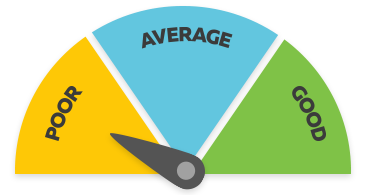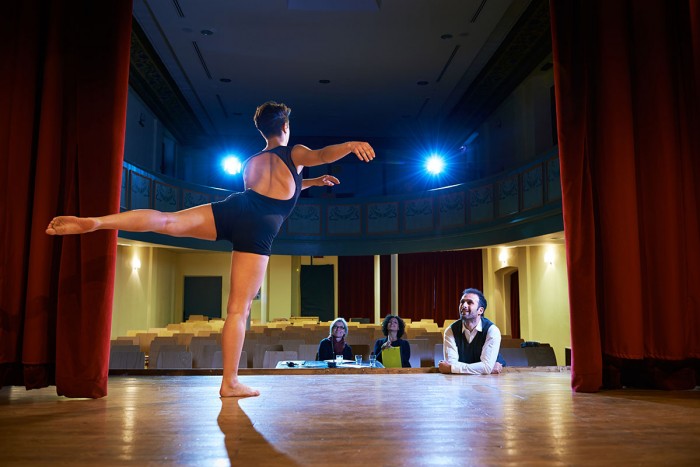Artistic Director
Kaihautū Toi
Alternative titles for this job
Artistic directors plan and direct the activities of performing arts organisations such as theatre and dance companies, and arts activities at festivals and venues.
Pay
Pay rates for artistic directors vary depending on your ability, experience, and what type of work you do.
Source: Centrepoint Theatre and Massive Company, 2018.
Job opportunities
Pay
Pay for artistic directors varies depending on ability, experience, and what type of work they do.
Sources: Centrepoint Theatre, 2018; Massive Company, 2018.
(This information is a guide only. Find out more about the sources of our pay information)
What you will do
Artistic directors may do some or all of the following:
- plan shows and performances for theatres, festivals and events
- plan budgets for theatre companies, productions, festivals and events
- plan marketing and promotion for productions, festivals and events
- develop business plans and budgets for theatre companies and festivals
- liaise with sponsors
- audition and hire designers, directors, actors, performers and technical staff as required for a production or event
- mentor and teach artists and performers
- direct or choreograph shows.
Skills and knowledge
Artistic directors need to have:
- knowledge of how to interpret and direct drama or dance
- knowledge of the local and international performing arts industry
- marketing and promotional skills
- the ability to plan strategically
- business, finance and budgeting skills.
Working conditions
Artistic directors:
- often work long and irregular hours, including nights and weekends
- work in theatres, studios and other venues where productions are staged
- may also work from home, in offices, or recording studios
- may travel to see or work on performances around New Zealand and overseas.
What's the job really like?

Colin McColl
Artistic Director
What do you do as an artistic director?
"I make all the major decisions regarding the Auckland Theatre Company. I decide the plays we do, the people we have in them and who works for the company.
"Our education programmes bring young people into the theatre, and we take workshops out to the schools. We help playwrights to develop their work."
How do you decide which plays to present?
"The artistic director has to stand for a particular style. The Auckland Theatre Company is known for promoting New Zealand work, and we also present contemporary plays from overseas, and some of the classics.
"I love it when audiences enjoy our stories from this part of the world, or our South Pacific take on some classic, such as the production of Hedda Gabler for Downstage Theatre set in 1950s New Zealand. When kids from South Auckland came to see Where We Once Belonged, they saw their stories on stage and they were blown away. It was phenomenal!"
How do you feel about the future of theatre?
"I'm really heartened because I see some very good young people coming through who are inventive and will keep the industry alive."
Entry requirements
There are no specific requirements to become an artistic director. However, a relevant tertiary qualification in performing arts, arts administration, or business management may be useful.
Experience in the entertainment industry and proven ability are essential.
Secondary education
There are no specific secondary education requirements to become an artistic director. However, te reo Māori, English, music, dance and drama, media studies, classics and history are useful.
Personal requirements
Artistic directors need to be:
- creative and imaginative
- patient, persistent and focused
- able to work well under pressure
- able to lead a team of people
- good at research
- excellent communicators, with good people skills
- good at time management, planning and organisation
- strong decision makers
- able to relate to people from a range of cultures.
Being able to manage your time efficiently and in an organised way is very important. I live my life by timetables.
Colin McColl
Artistic Director
Useful experience
Useful experience for artistic directors includes:
- directing or producing plays or films
- choreography
- other theatre or film work such as acting or writing plays.
Physical requirements
Artistic directors who work with dancers need to be reasonably fit.
Find out more about training
What are the chances of getting a job?
Strong competition for artistic director roles
Chances of getting a job as an artistic director are poor as the entertainment industry in New Zealand is small and considerable experience in the industry is needed for the role. Most people enter the industry through an entry-level role, such as an assistant, to gain experience and get known.
According to the Census, 45 artistic directors worked in New Zealand in 2018.
Essential to have arts experience
It is essential for artistic directors to demonstrate their experience and ability with a strong history of previous work on, for example, plays, festivals and other performing arts events. Such work provides opportunities to develop skills and gain exposure.
Small range of employers for artistic directors
The main employers of artistic directors are:
- film and video businesses
- radio and television organisations
- marketing and business management companies
- arts organisations such as theatre and dance companies.
Sources
- Manatū Taonga − Ministry for Culture and Heritage, Creative New Zealand, 'Working Paper: An economic profile of the arts in New Zealand', March 2015, (www.mch.govt.nz).
- Pengelly, D, artistic director, Centrepoint Theatre, careers.govt.nz interview, May 2018.
- Scott, S, artistic director, Massive Company, careers.govt.nz interview, May 2018.
- Stats NZ, '2018 Census Data', 2019.
(This information is a guide only. Find out more about the sources of our job opportunities information)
Progression and specialisations
Artistic directors may progress into project, events or business management roles.
Artistic directors may specialise in:
- dance
- drama
- festivals.
Last updated 15 November 2019

